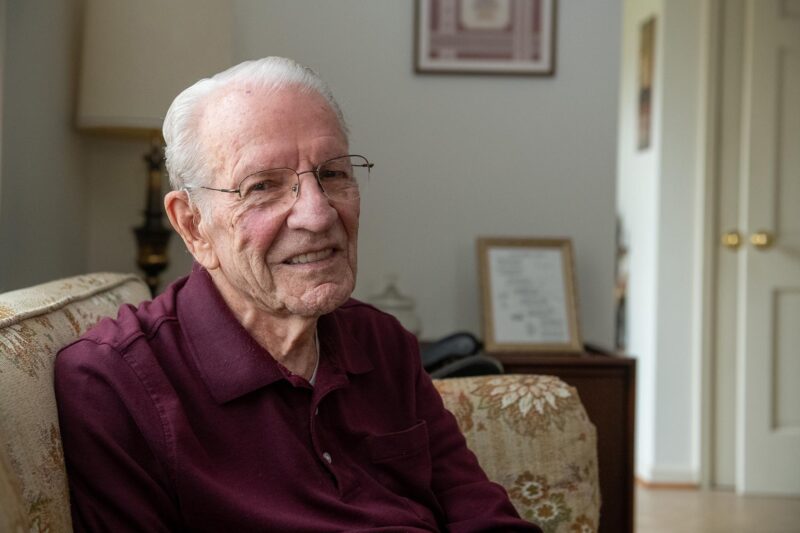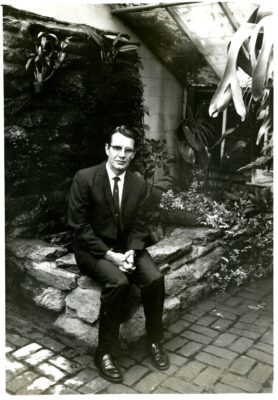
Dr. William Sherwood, a professor emeritus who taught biology at Lynchburg from 1969 to 1989, turned 100 on March 11, 2024.
He was born in Sao Paulo, Brazil, to Southern Baptist missionaries stationed in the country’s interior, about 800 miles west of then-capital Rio de Janeiro. His family lived on a 15-acre farm with goats, cows, and chickens, and an orchard of mango, papaya, cashew, and banana trees.
There, Sherwood and his older brother, Thomas, milked cows and goats, gathered eggs, hoed weeds, cut brush, and chopped wood for the woodstove. “It was just growing up as a typical kid in a foreign land, but not realizing you were in a foreign land,” he said. “It was my native land.”

The Sherwood children — there would eventually be 10 — studied in a garage-turned-classroom with a correspondence school curriculum taught by their mother.
For high school, a global faculty of tutors was enlisted: a “Parisian lady” taught French, a “Spanish lady” taught Spanish, a Syrian taught history and geography, an Italian taught Portuguese, and an Indian taught English.
“We had many nationalities in the community,” Sherwood said.
At 18, Sherwood traveled to the U.S. to attend North Greenville Baptist Academy in South Carolina. He earned his high school diploma and studied college English there until the U.S. entered World War II and he was drafted.
Sherwood spent about 2 1/2 years in the U.S. Navy as a hospital corpsman and pharmacist’s mate. In late September 1945, after the atomic bombs were dropped on Japan, he joined the U.S. Naval Technical Mission to Japan.
“The team went to study the effects of the atomic bomb,” he said, adding that he interviewed survivors of the blast and took blood samples, which were sent to the U.S. for analysis.
After leaving the Navy, he attended Wake Forest University, where he earned a bachelor’s degree in biology. He taught high school biology in North Carolina and Tennessee and botany at Mars Hill Junior College.
In the 1950s and ’60s, he earned a master’s and PhD from the University of North Carolina at Chapel Hill and did postdoctoral research at New York Botanical Garden. He was published in professional journals and referenced in a leading mycology textbook.
He also married his wife of 42 years, Barbara, with whom he had two daughters, Lauren and Martha.
One summer, Sherwood met Lynchburg College biology professor Dr. Gwen Ramsey at a course at North Carolina State University. He later learned there was a teaching vacancy at Lynchburg and applied for it.
For the next 19 years, Sherwood taught general biology and courses on the morphology of nonvascular plants — lichens, mosses, fungi, etc. He taught nutrition for nursing students and microbiology for nursing and biology majors.
One of those students, Desi Justis ’86, ’95 MEd, describes Sherwood as “a great microbiology teacher,” “even keeled,” and “a sweet man.” Justis, who worked at Lynchburg for 30 years as a lab instructor and manager, added, “I loved him as a teacher.”
Sherwood left Lynchburg College in 1989, but it would be unfair to say he “retired.” He still goes to work five afternoons a week at a local laboratory, where he analyzes well and non-potable water for the presence of E. coli.
A humble man, he doesn’t think there’s anything remarkable about that. “It’s something to do,” he said.

